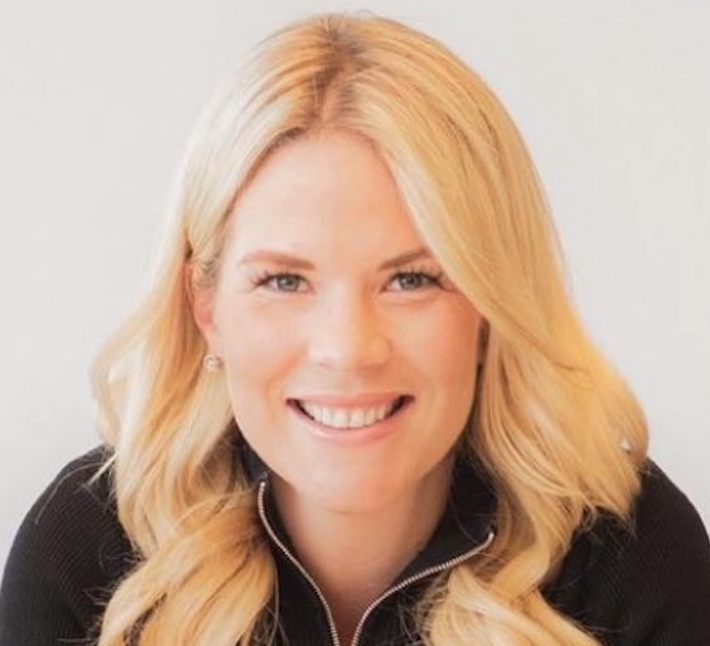Boss reveals how a four-day work week boosted her business profits: ‘Come to work on Monday your best self’
A Toronto company that switched to four-day weeks say the trial has been such a success that they’ll never go back to the old way of working


Your support helps us to tell the story
From reproductive rights to climate change to Big Tech, The Independent is on the ground when the story is developing. Whether it's investigating the financials of Elon Musk's pro-Trump PAC or producing our latest documentary, 'The A Word', which shines a light on the American women fighting for reproductive rights, we know how important it is to parse out the facts from the messaging.
At such a critical moment in US history, we need reporters on the ground. Your donation allows us to keep sending journalists to speak to both sides of the story.
The Independent is trusted by Americans across the entire political spectrum. And unlike many other quality news outlets, we choose not to lock Americans out of our reporting and analysis with paywalls. We believe quality journalism should be available to everyone, paid for by those who can afford it.
Your support makes all the difference.As the Covid-19 pandemic stretched on into the fall of 2020, Jamie Savage noticed her staff was suffering burnout.
Ms Savage, the founder and CEO of Toronto-based recruitment firm The Leadership Agency, called her COO Elizabeth Tufegdzich and asked if she had noticed a malaise setting in among their employees, who had been working remotely for six months.
“We need to make some changes,” Ms Savage recalls saying.
The company already allowed staff to work a half-day on Fridays, and so they thought, why not make the leap to a four-day work week.

The nine staff members remained on the same wages and benefits, and it was made clear they wouldn’t be asked for anything in return.
Ms Savage told The Independent she noticed an immediate impact on staff productivity and wellbeing, as well as the company balance sheet.
Revenue doubled and conversion rates for job applicants they were assisting went from 74 per cent to 96 per cent.
Ms Tufegdzich told The Independent the shift was “really dramatic at a time when a lot of small businesses were struggling”.
“And overall just team happiness is a big measure of productivity as well. Somebody can be performing really well but still be really disengaged at work.”
The firm’s management agreed they had to set the tone, and forced themselves to switch off from answering work emails on Fridays.

“We had to get really intentional about taking Fridays off and lead by example,” Ms Savage said.
Staff took advantage of the extra day of freedom to go to the dentist, visit a museum, or catch up with family.
Some took the opportunity to try therapy, as prioritising mental health became vital during the pandemic.
They told staff that it was their time “to do whatever makes you feel better, and whatever makes you come to work on Monday your best self”.
Ms Savage said the key to the programme’s success was not asking for nothing in return from their staff.
“This is a true addition to their lives. We didn’t want there to be any sacrifice or exchange made.”
At the time The Leadership Agency trialled their new work regime, there was no playbook on how to launch or implement it, so they had to come up with processes themselves.
“There wasn’t anyone in our peer group or competitive landscape that was doing this. We did it because it felt right and we’re a small business so we can be agile,” Ms Savage said.
Since then, results of the world’s largest ever trial of a four-day working week in Iceland found it to be an “overwhelming success”.
More than one per cent of Iceland’s working population took part in the pilot programme which cut the working week to 35-36 hours with no reduction in overall pay.
Analysis of the trials, which ran from 2015 to 2019 and involved more than 2,500 people, boosted productivity and wellbeing and are already leading to permanent changes.
The pandemic has fundamentally altered both the ways in which people work and attitudes towards employment, all part of what has become known as The Great Resignation.

This was reinforced this week by a new report that found 4.3 million Americans quit their jobs in August.
Ms Savage said clients based in the United States, the UK and Canada, had become interested in implementing reduced working hours for staff after hearing about their move.
She acknowledges that four-day weeks will not suit every business, and that many managers fear change.
But she said anyone who doesn’t adapt to the new mode of work will get left behind.
“There is a fear of failure, or that you’re not working hard enough. The businesses that are actually thriving are the ones that are putting their employees first,” said Ms Tufegdzich.
The Leadership Agency has vowed to stick the four-day work week, pledging to “never go back” to the Monday to Friday slog.



Join our commenting forum
Join thought-provoking conversations, follow other Independent readers and see their replies
Comments